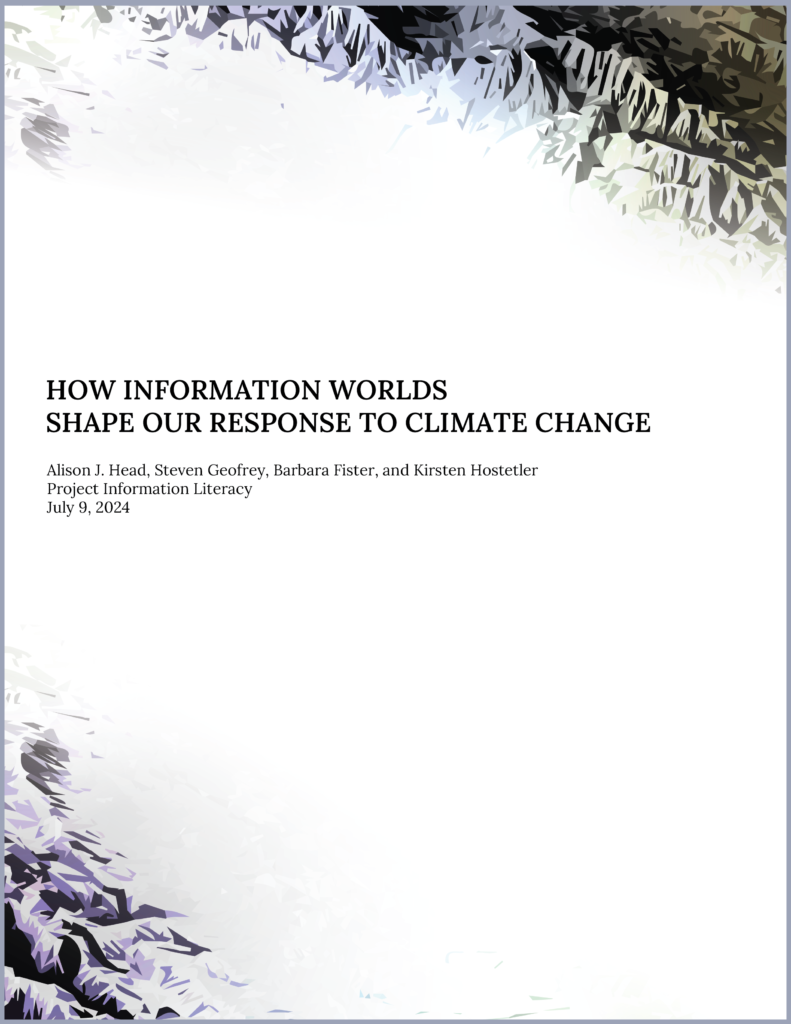Table of Contents
- Full report: How information worlds shape our response to
climate change
Note: This report is best viewed in Chrome, Firefox, Safari, or Edge. - Executive Summary
- Additional assets from the report:
- Press Release
- In the News:
“‘It’s not going away’: Americans show surprising consensus on climate change,” Austin Murphy, The Press Democrat, September 3, 2024.
“To address climate anxiety, consider how students get their news on the issue,” Alison J. Head, personal essay, EdSurge, September 25, 2024.
“Here come the climate wars,” Alison J. Head, NRDC Action Fund Network website, September 25, 2024.
“How college students respond to climate change in troubled times: Four takeaways from Project Information Literacy’s latest study,” Alison J. Head, College & Research Libraries News, October 2, 2024.

Summary
As a majority of Americans experience extreme weather events, findings from PIL’s climate study suggest understanding of the crisis is shifting away from skepticism toward acceptance and, for many, a rising sense of urgency about taking collective action to save a planet in peril. This report uniquely examines how understanding of the climate crisis is formed, based on the ways in which people encounter and process climate change news and information from traditional sources and social media as well as from friends and family.
Findings are presented from a large-scale online survey deployed in Fall 2023 to a sample of the U.S. general population between the ages of 16 to 85 (N = 4,503), and from a slightly modified version of the same online survey in Winter 2024 to college students, ages 18 to 35 years old (N = 1,593), enrolled at nine U.S. higher education institutions. A computational analysis of the general population sample shows how respondents are clustered based on their beliefs, media preferences, climate anxiety, and willingness to take action. Three prominent groups with strong affinities emerged: The Engaged (33%), the Detached (47%), and the Resistant (9%). Four mile markers about news, trust, discourse, and hope are identified to reveal significant points of interest about how social and technological characteristics shape people’s understanding and attitudes about the climate crisis in America.
Preferred citation format: Alison J. Head, Steven Geofrey, Barbara Fister, and Kirsten Hostetler (July 9, 2024), How information worlds shape our response to climate change, Project Information Literacy Research Institute, https://projectinfolit.org/publications/climate-study

The Climate Change Study has a Creative Commons (CC) license of “CC BY-NC-SA 4.0.” This license allows others to share, copy, adapt, and build upon the survey data non-commercially, as long as the source — Project Information Literacy — is credited and users license their new creations under the identical terms.
